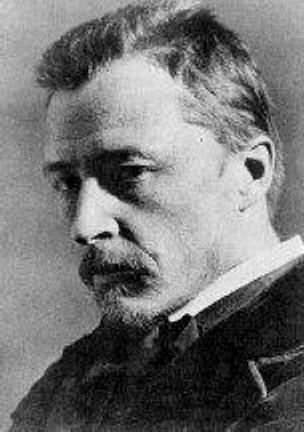
Hugo Philipp Jacob Wolf was an Austrian composer of Slovene origin, particularly noted for his art songs, or Lieder. He brought to this form a concentrated expressive intensity which was unique in late Romantic music, somewhat related to that of the Second Viennese School in concision but diverging greatly in technique.

A string orchestra is an orchestra consisting solely of a string section made up of the bowed strings used in Western Classical music. The instruments of such an orchestra are most often the following: the violin, which is divided into first and second violin players, the viola, the cello, and usually, but not always, the double bass.
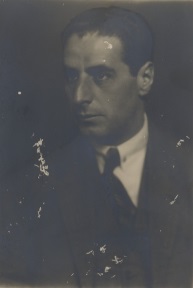
Ernst Toch was an Austrian composer of European classical music and film scores, who from 1933 worked as an émigré in Paris, London and New York. He sought throughout his life to introduce new approaches to music.
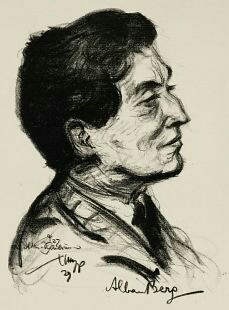
The Lyric Suite is a six-movement work for string quartet written by Alban Berg between 1925 and 1926 using methods derived from Arnold Schoenberg's twelve-tone technique. Though publicly dedicated to Alexander von Zemlinsky, the work has been shown to possess a "secret dedication" and to outline a "secret programme".
Alfred Uhl was an Austrian composer, violist, music teacher and conductor.
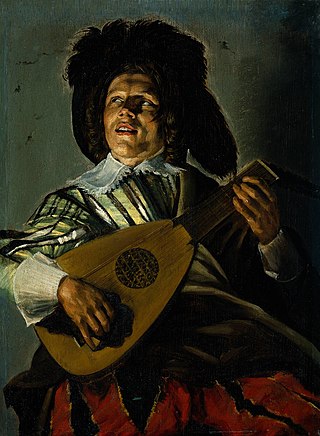
In music, a serenade is a musical composition or performance delivered in honor of someone or something. Serenades are typically calm, light pieces of music. The term comes from the Italian word serenata, which itself derives from the Latin serenus. Sense influenced by Italian sera "evening," from Latin sera, fem. of serus "late."
Gordon Percival Septimus Jacob CBE was an English composer and teacher. He was a professor at the Royal College of Music in London from 1924 until his retirement in 1966, and published four books and many articles about music. As a composer he was prolific: the list of his works totals more than 700, mostly compositions of his own, but a substantial minority of orchestrations and arrangements of other composers' works. Those whose music he orchestrated range from William Byrd to Edward Elgar to Noël Coward.

John Herbert Foulds was an English cellist and composer of classical music. He was largely self-taught as a composer, and belongs among the figures of the English Musical Renaissance.

Arnold Krug was a German composer and music teacher.

Claude Étienne Edmond Marie Pierre Delvincourt was a French pianist and composer of classical music.

Hans Gál OBE was an Austrian composer, pedagogue, musicologist, and author, who emigrated to the United Kingdom in 1938.
Raymond Henry Charles Warren is a British composer and university teacher.
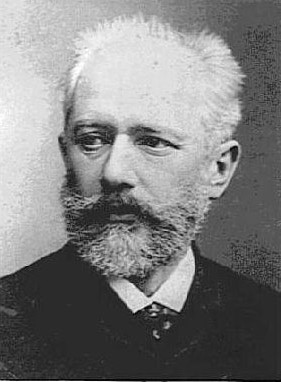
While the contributions of the Russian nationalistic group The Five were important in their own right in developing an independent Russian voice and consciousness in classical music, the compositions of Pyotr Ilyich Tchaikovsky became dominant in 19th century Russia, with Tchaikovsky becoming known both in and outside Russia as its greatest musical talent. His formal conservatory training allowed him to write works with Western-oriented attitudes and techniques, showcasing a wide range and breadth of technique from a poised "Classical" form simulating 18th century Rococo elegance to a style more characteristic of Russian nationalists or a musical idiom expressly to channel his own overwrought emotions.
String Quartet No. 2, also known by its other title Company, is a string quartet by American composer Philip Glass. This composition was finished in January 1983 in New York City, and was expected to be a piece of instrumental music for Fred Neumann's adaptation of Samuel Beckett's 1979 novella with the same name.

Die Tageszeiten is a choral composition written for male voice choir and orchestra by Richard Strauss (1864–1949), TrV 256, Op. 76. It consists of four movements: "The Morning", "Afternoon Peace", "The Evening" and "The Night". The lyrics are based on four poems of the same names by Joseph Eichendorff (1788–1857) from his collection Wanderlieder. The work was premiered on 21 July 1928 with the Wiener Schubertbund and the Vienna Philharmonic as part of the Schubert centenary.












